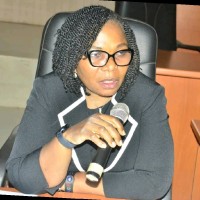From Adanna Nnamani, Abuja
A civil society group, Baobab for Women’s Rights has pushed for more inclusion of women in politics, saying that bias and oppression have remained stumbling blocks inhibiting their participation.
The group which made the call on Wednesday in Abuja, also unveiled an initiative called “the Network of Female Politicians for More (NFP4MORE), which it plans to further utilize to promote its course.
Speaking at the event, Rt. Hon. Olubunmi Adelugba, the first female speaker of the Ekiti House of Representatives and the interim chair of NFP4more, bemoaned the continued widening gap in the representation of women in governance despite concerted efforts by non-state actors, particularly women’s organisations, to increase the number of women in politics.
Adelugbe said that though women constitute 49.46 percent of Nigeria’s population, patriarchal cultures, gender and structural inequality have continued to impede their participation in politics.
She said: “A major cause and consequence of the present situation of women is the low representation of women in leadership and limited participation in decision-making spaces. Nigeria has over the years recorded abysmally low participation of women in both elective and appointive positions at all levels.”
Executive Director of Baobab, Mrs Bunmi Dipo-Salami, said NFP4MORE was born to promote increased women’s political representation and leadership in the country as well as serve as a support system for them in the political sector.
According to Dipo-Salami, “The mission of the network is to promote increased participation of women in politics and inclusion in decision making spaces, through knowledge production and advocating for the domestication and implementation of legal frameworks that enable women to participate fully in politics and leadership. The network is not just about equal opportunities but about recognizing and addressing conscious and unconscious biases, which have contributed to the status quo.
The ED further called on the Nigerian government to domesticate the Maputo protocol to ensure the inclusion of women at all levels of governance.
“In addition, we would also like to call on relevant stakeholders to join hands as we work together for the inclusion of more women in politics.
“Against all odds, the time is now for Nigeria’s visionary female politicians to join politics and change the narrative. Those that are already in space to be strengthened.” She stated.

